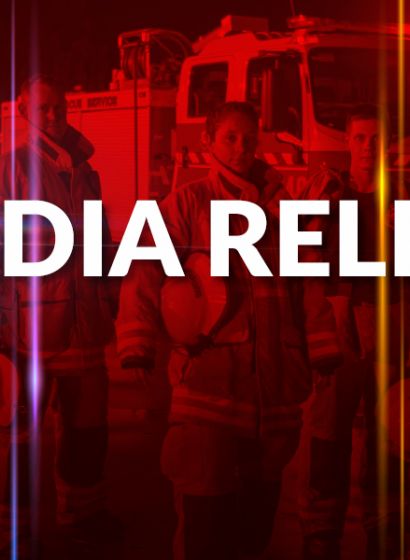A Tropical Cyclone warning has been issued for parts of the north-west Top End, including the Tiwi Islands.
Bureau of Meteorology predictions suggest an intensifying tropical low is expected to develop into a Category 1 Tropical Cyclone during the evening.
A Warning has been issued for communities from Cape Hotham to Maningrida including the Tiwi Islands and a Watch zone is in place from the WA/NT border to Cape Hotham and Maningrida to Milingimbi.
“A cyclone warning means this areas may experiences gales and stronger winds within the next 24 hours, along with heavy rain,” Deputy Regional Controller Warren Jackson said.
“People should stay away from beaches and coastal areas as the storm is approaching and passing due to higher than normal tides and wind-driven surf. Coastal flooding may occur in the area, which is also dangerous.”
“Residents in the Warning zone should remain indoors as the weather deteriorates later tonight.”
Those in the Warning zone should:
- Listen for the announcement that schools could close and be prepared to collect your children.
- Park vehicles under solid shelter (with the handbrake on and in gear).
- Put wooden or plastic outdoor furniture in your pool or inside with other loose items.
- Draw curtains and shut doors.
- In case you need to evacuate, pack an evacuation kit of warm clothes, essential medications, baby formula, nappies etc, valuables, important papers, photos, mementoes in waterproof bags; to be taken with your emergency kit.
- Large/heavy valuables could be protected in a strong cupboard.
- Remain indoors (with your pets).
- Stay tuned to your local radio/television for further information.
If you are in the Watch zone you need to make sure you:
- Re-check your property for any loose material and tie down (or fill with water) all large, relatively light items such as boats and rubbish bins.
- Fill your vehicles' fuel tanks. Fill Jerry cans with fuel if you have any.
- Check your emergency kit and fill any water containers you may have (you should have at least 3 litres of water per person per day for at least 72 hours).
- Ensure household members know what the strongest part of the house is and what to do in the event of a cyclone warning or an evacuation.
- Tune in to your local radio and/or television stations for further information and warnings.
- Check neighbours are aware of the situation and are preparing.
A list of what residents should include in their emergency kit can be found on the Northern Territory Emergency Service website: http://www.pfes.nt.gov.au/Emergency-Service/Public-safety-advice/Household-emergency-planning.aspx
“The islands should begin to experience squally weather later today and we can expect similar in Darwin as the intensifying tropical low moves south,” Deputy Regional Controller Jackson said.
“Motorists should keep an eye out for flash flooding and take extra care on the roads. Please restrict your travel and only take to the roads if necessary one the weather deteriorates. Remember, if it’s flooded, forget it.”
Other warnings current at this time include an initial flood watch for North West Coastal Rivers and a Marine Wind Warning for gale force winds.
For more information on the tropical low and weather warnings go to the BoM website: http://www.bom.gov.au/nt/warnings
Cyclone preparedness information is available at SecureNT: https://securent.nt.gov.au/prepare-for-an-emergency/cyclones


